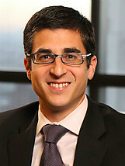Pretreatment dysphagia in esophageal cancer patients may eliminate the need for staging by endoscopic ultrasonography Journal Article
| Authors: | Ripley, R. T.; Sarkaria, I. S.; Grosser, R.; Sima, C. S.; Bains, M. S.; Jones, D. R.; Adusumilli, P. S.; Huang, J.; Finley, D. J.; Rusch, V. W.; Rizk, N. P. |
| Article Title: | Pretreatment dysphagia in esophageal cancer patients may eliminate the need for staging by endoscopic ultrasonography |
| Abstract: | Background Neoadjuvant therapy is commonly administered to patients with localized disease who have T3-4 esophageal disease as staged by endoscopic ultrasound (EUS). Previously, we noted that patients who present with dysphagia have a higher EUS T stage. We hypothesized that the presence of dysphagia is predictive of EUS T3-4 disease and that staging EUS could be forgone for esophageal cancer patients with dysphagia. Methods We performed a prospective, intent-to-treat, single-cohort study in which patients with potentially resectable esophageal cancer completed a standardized four-tier dysphagia score survey. EUS was performed as part of our standard evaluation. To determine whether the presence of dysphagia predicted EUS T3-4 disease, the dysphagia score was compared with EUS T stage. Results The study enrolled 114 consecutive patients between August 2012 and February 2014: 77% (88 of 114) received neoadjuvant therapy, 18% (20 of 114) did not, and 5% (6 of 114) pursued treatment elsewhere. In total, 70% (80 of 114) underwent esophagectomy; of these, 54% (61 of 114) had dysphagia and 46% (53 of 114) did not. Dysphagia scores were 66% (40 of 61) grade 1, 25% (15 of 61) grade 2, and 10% (6 of 61) grade 3 to 4. Among patients with dysphagia, 89% (54 of 61) had T3-4 disease by EUS; among those without dysphagia, only 53% (28 of 53) had T3-4 disease by EUS (p < 0.001). Conclusions The presence of dysphagia in patients with esophageal cancer was highly predictive of T3-4 disease by EUS. On the basis of this finding, approximately 50% of patients currently undergoing staging EUS at our institution could potentially forgo EUS before neoadjuvant therapy. Patients without dysphagia, however, should still undergo EUS. © 2016 The Society of Thoracic Surgeons. |
| Keywords: | adult; major clinical study; conference paper; paclitaxel; cancer adjuvant therapy; cancer patient; cancer staging; prospective study; carboplatin; cohort analysis; dysphagia; scoring system; esophagus resection; esophagus cancer; predictive value; chemoradiotherapy; endoscopic echography; intention to treat analysis; human; male; female; priority journal |
| Journal Title: | Annals of Thoracic Surgery |
| Volume: | 101 |
| Issue: | 1 |
| ISSN: | 0003-4975 |
| Publisher: | Elsevier Science, Inc. |
| Date Published: | 2016-01-01 |
| Start Page: | 226 |
| End Page: | 230 |
| Language: | English |
| DOI: | 10.1016/j.athoracsur.2015.06.062 |
| PROVIDER: | scopus |
| PMCID: | PMC4765728 |
| PUBMED: | 26603024 |
| DOI/URL: | |
| Notes: | Conference Paper -- Presented at the Poster Session of the Fifty-first Annual Meeting of The Society of Thoracic Surgeons in San Diego, CA, Jan 24-28, 2015 -- Export Date: 3 March 2016 -- Source: Scopus |
Altmetric
Citation Impact
BMJ Impact Analytics
MSK Authors
Related MSK Work













